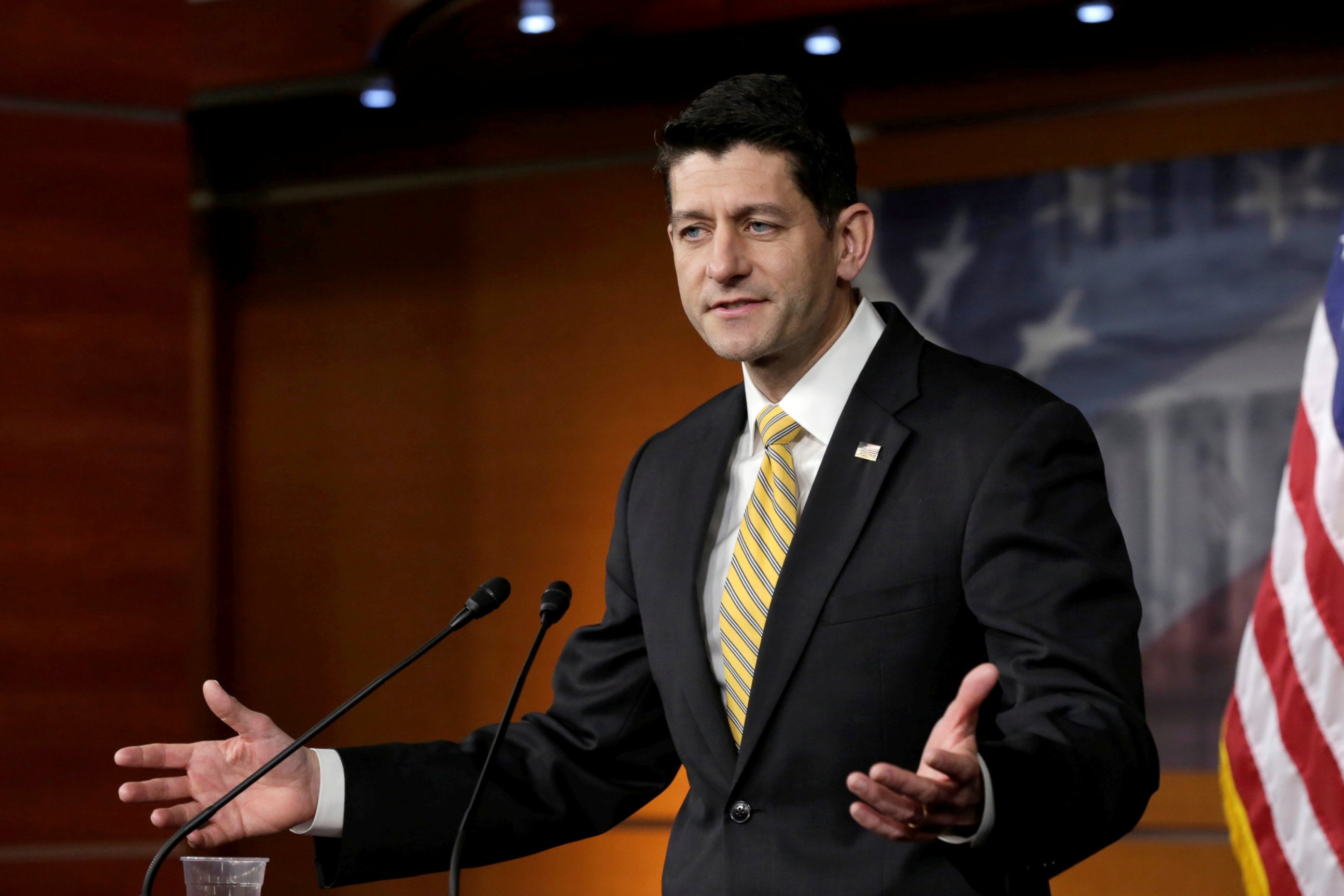Sessions should recuse himself from Russia inquiries if subject of DOJ investigation, Paul Ryan says
Sessions did not reveal under oath that he had contact with Russian ambassador.
— -- House Speaker Paul Ryan said Attorney General Jeff Sessions should recuse himself from Justice Department investigations over the alleged links between the Trump campaign and the Russian government if he "is the subject of an investigation."
Sessions told NBC News this morning, "Whenever it's appropriate, I will recuse myself."
"Should he recuse himself? I think he answered that question this morning, which is, if he himself is the subject of an investigation, of course he would. But if he's not, I don't see any purpose or reason to doing this," Ryan said today at his weekly news conference on Capitol Hill.
When asked if Sessions misled the Senate Judiciary Committee during his confirmation hearing about his contact with Russia, Ryan said, "I'll refer to the Senate Judiciary Committee."
Ryan argued that it's common for congressional members to meet with ambassadors.

Sessions met twice with Sergey Kislyak, Russia's ambassador to the U.S., during the 2016 election season, the Department of Justice confirmed Wednesday.
"I never met with any Russian officials to discuss issues of the campaign," Sessions said in a statement Wednesday night. "I have no idea what this allegation is about. It is false."
House Oversight Committee Chairman Jason Chaffetz called for Sessions to recuse himself from Justice Department investigations into the Trump campaign and Russia.
House Majority Leader Kevin McCarthy said this morning that Sessions "needs to clarify what these meetings were and when did he have them."
"Do you think he should recuse himself from this investigation, given this now disclosed meeting?" MSNBC's Mark Halperin asked McCarthy.
"I think the trust of the American people — you recuse yourself in these situations," McCarthy replied.
"You would urge him to recuse himself?" Halperin followed up.
McCarthy answered, "I don’t have all the information in front of me. I don't want to prejudge, but I just think for any investigation going forward, you want to make sure everybody trusts the investigation."
Halperin continued, "Does that require his recusal, Congressman?"
"I think it would be easier from that standpoint, yes," McCarthy said.
Less than an hour later, however, McCarthy walked back his comments during an interview on Fox News.
"I'm not calling on him to recuse himself," McCarthy said. "As you just heard, Attorney General Sessions said he would recuse himself, going forward ... and that's all my answer was. It's amazing how people spin things so quickly."
White House press secretary Sean Spicer defended Sessions in an interview with Fox News.
"There's nothing to recuse himself, he was 100 percent straight with the committee and I think that people are choosing to play partisan politics and they should be ashamed of themselves," Spicer said.
During his confirmation hearing in January, Sessions was asked by Sen. Al Franken, D-Minn., what he would do if there was evidence that the Trump campaign communicated with the Russian government.
"I'm not aware of any of those activities. I have been called a surrogate at a time or two in that campaign, and I did not have communications with the Russians, and I'm unable to comment on it," Sessions replied.
Sessions, however, held a meeting in his Senate office with Kislyak in September. The meeting was listed on his public schedule.
According to The Washington Post, Sessions also encountered Kislyak at a Heritage Foundation event in July, which a Justice Department official described as a "brief encounter."



